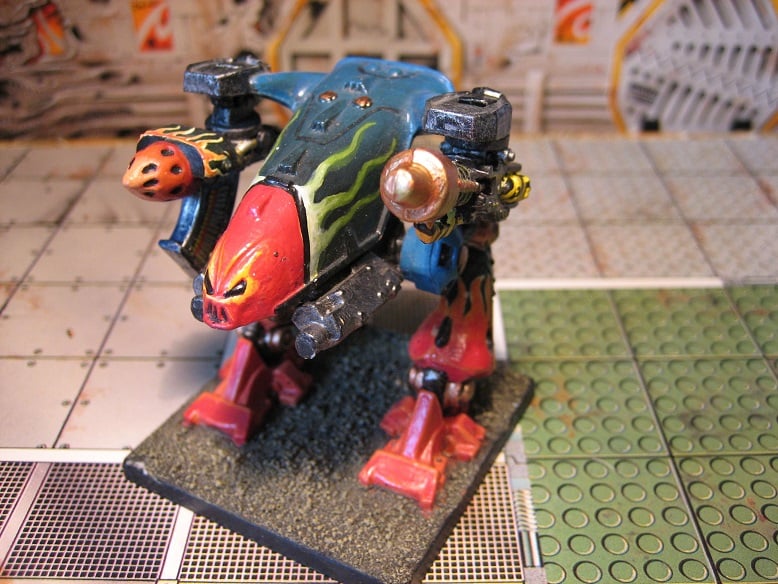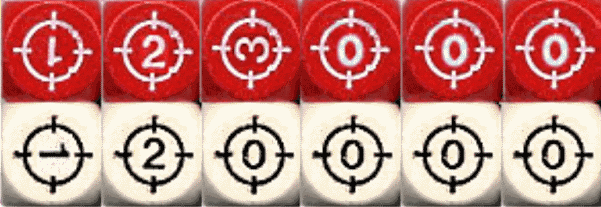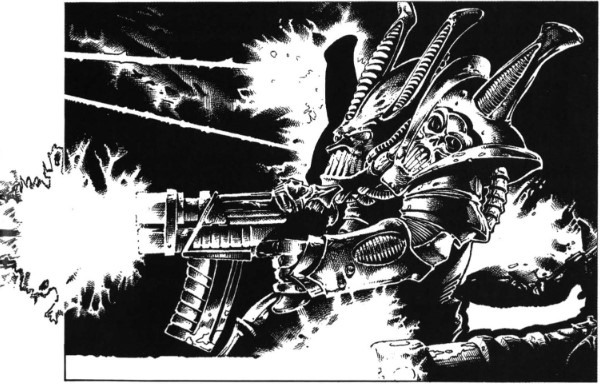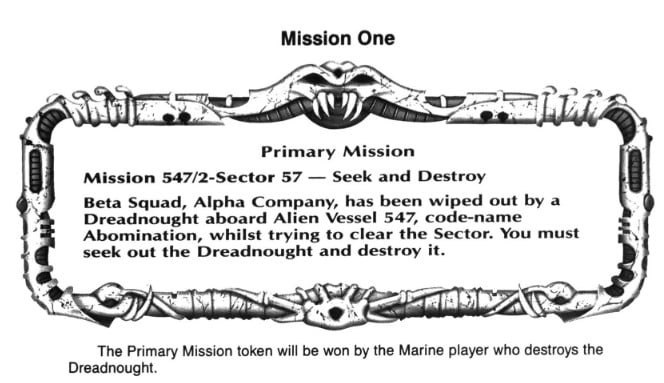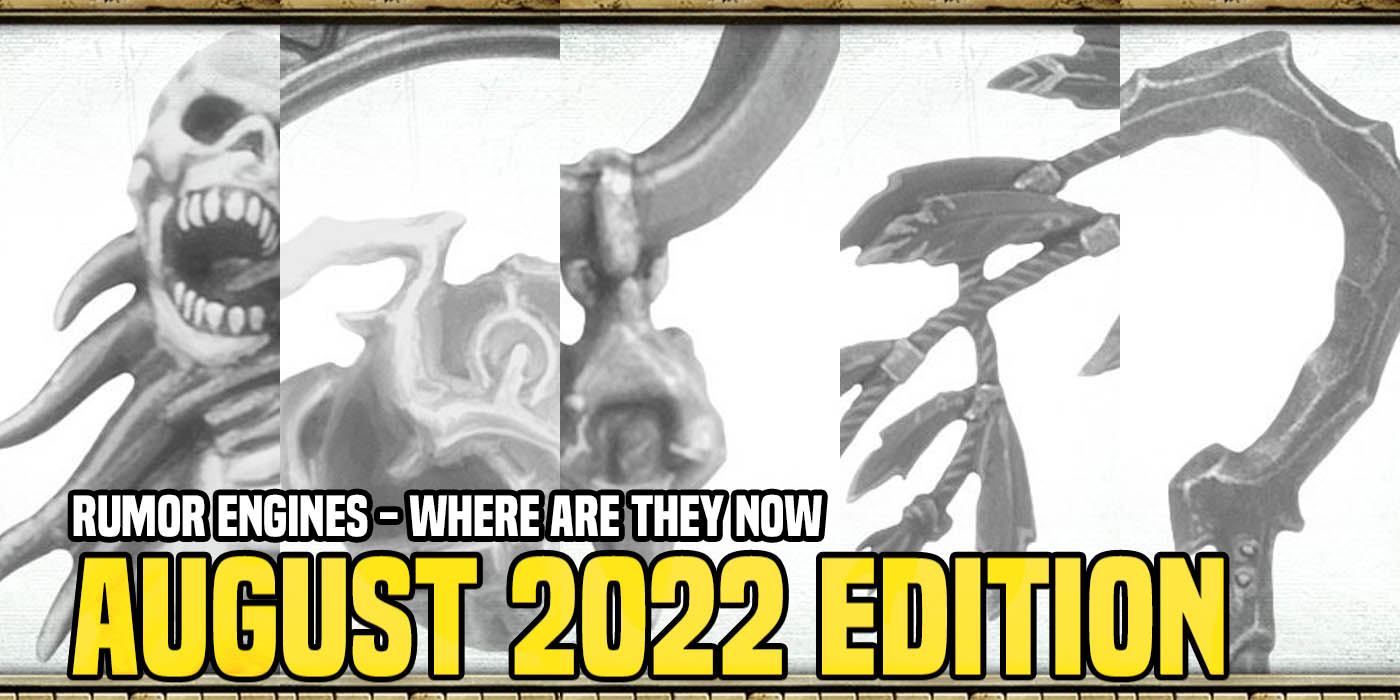It’s So Disappointing That Games Workshop’s ‘Space Crusade’ is a Bad Game
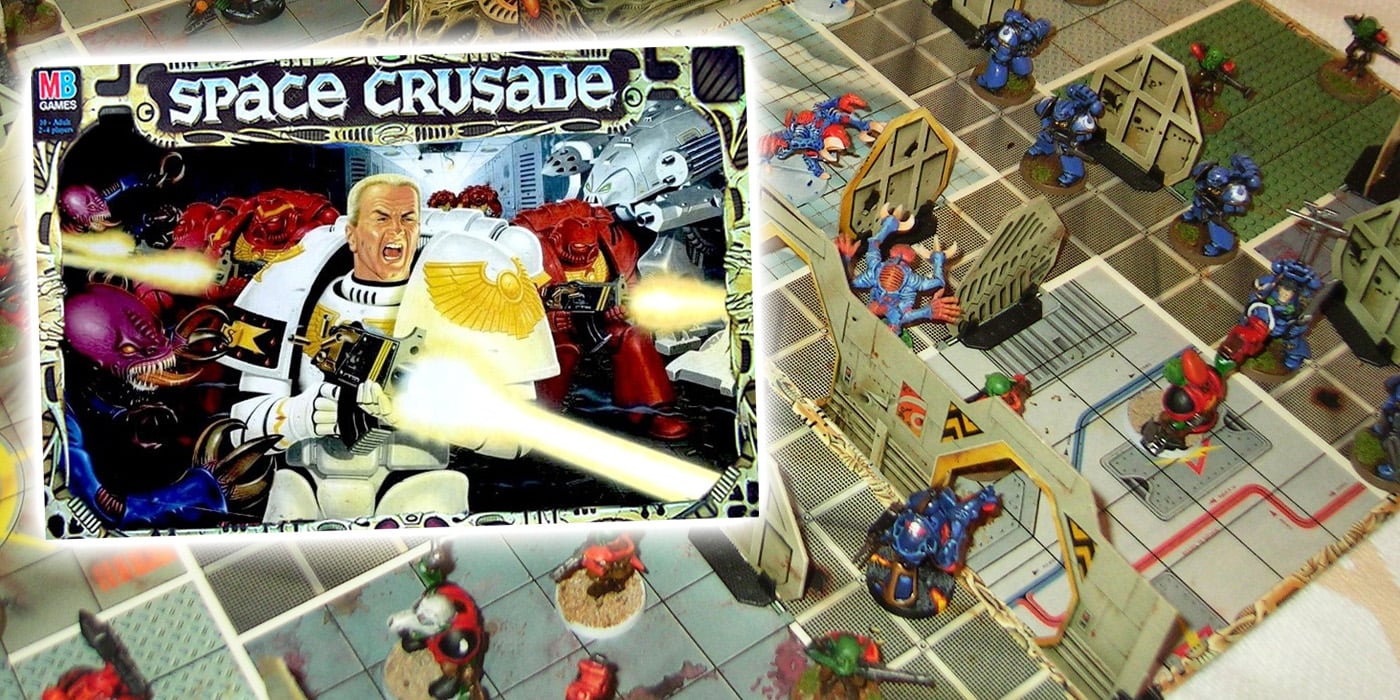

You probably know Space Crusade; It’s the HeroQuest of Warhammer 40k, right? The problem is that it’s a really bad game.
Before you go rushing to the comments and start ranting and raving about how wrong I am, hear me out. I’m not saying it’s not fun, because it can be. It can be great fun. It can be an exciting, fun adventure for players willing to play it that way. But, much like the Space Crusade video game, when looking at the rules, game balance, and mechanics, it’s just awful.
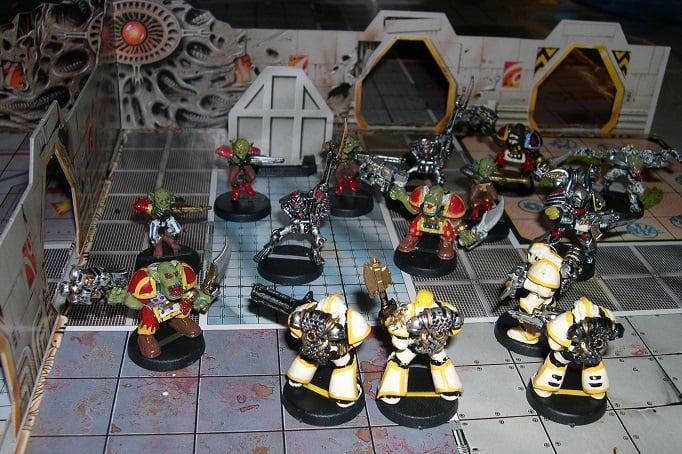
Space Crusade Isn’t All Bad
Released in 1990 by Games Workshop, Space Crusade pits one or more Space Marine teams against an “alien player”, who controls a mix of Chaos Space Marines, Orks, Not-Quite-Necrons, and more. This brings us to the first point in this game’s favor: the miniatures are great. They have great variety, they have modular equipment and weapons and there’s just a decent variety within the game. Plus, you get a very retro Dreadnought!
The game uses a Mission Book to determine how the game board will be set up, the Marine players’ objectives, and how many reinforcements the Alien player has. Within each mission, there are certain objectives for each of the Marine teams to compete to complete. However, each objective and enemy killed is tallied in victory points, and it’s the player with the most points who is declared the winner of the game. And this is the crux of the issue with Space Crusade.
We’re All Players Here
In HeroQuest and similar games, there’s a Game Master to set up the enemies, traps, and such. However, that’s not really the case here, although it might seem like it. The Alien player isn’t a game master, they are another player. They can win or lose just like the Marines. On top of that, in typical dungeon crawlers, the non-GM players are working together. Also not the case in Space Crusade. Each Marine team is working for themselves.
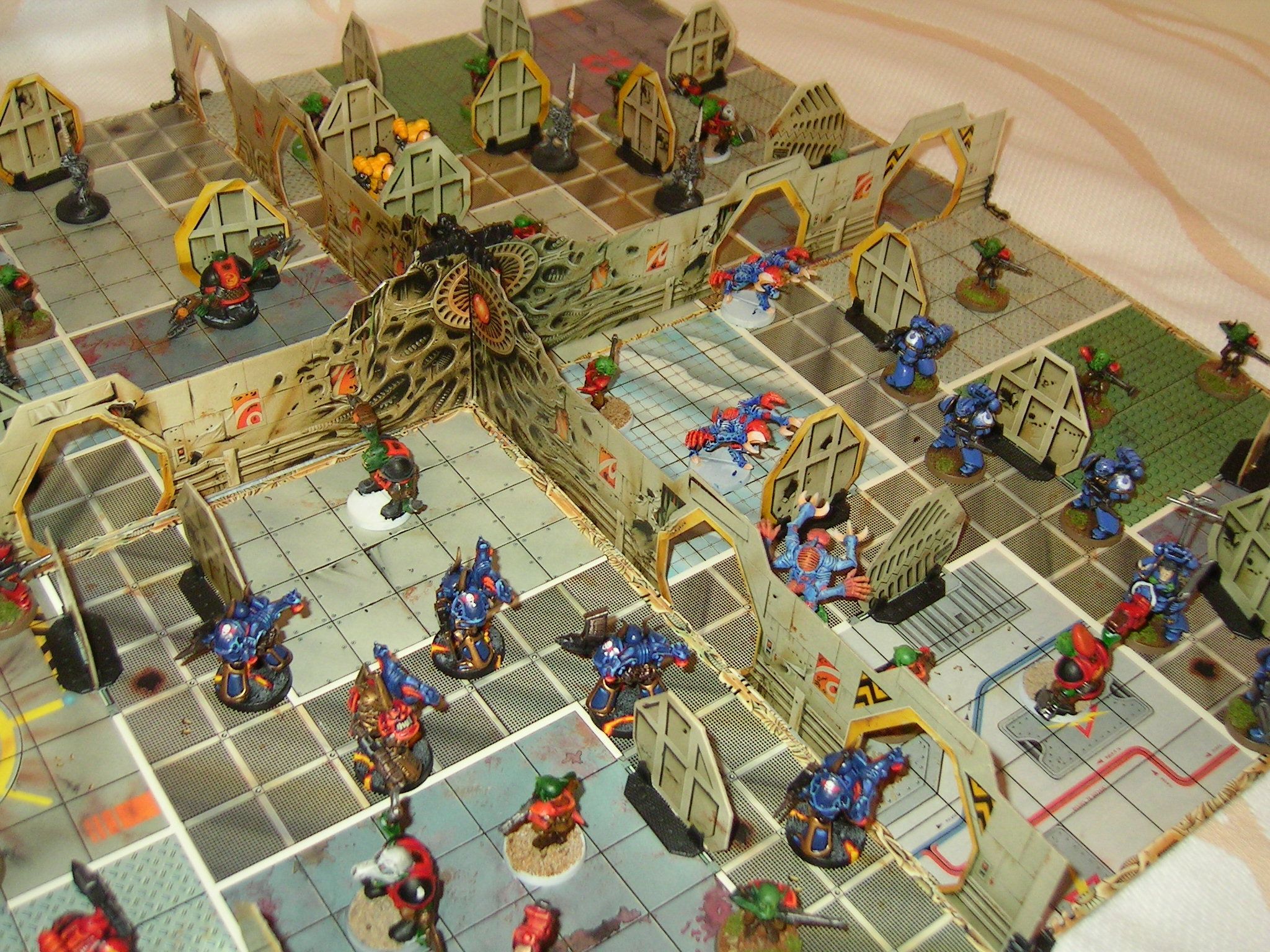
If you’ve ever played a free-for-all competitive game, you’ve experienced everyone else focusing on you and killing your troops, stealing your resources, and whatever else. That’s the life of the Alien player in Space Crusade. It’s everyone versus you.
“But!”, I hear you say, “the Alien player has way more troops and power than the Marines. That’s the whole balance of the game!” True enough in theory. But, sadly, it doesn’t quite work out that way.
Why Not Go All Out?
In Space Crusade, each time a Marine enters a new section, the Alien player can place “some, none, or all, of his remaining Blip tokens onto a board being scanned”. There is no mention of limits or balance depending on player count.
So, in a two-player game, there is nothing stopping the Alien player from unloading literally every unit they have into the first room and swarming over the Marines before they can even make it out of their airlock.
“But!”, I hear you cry out again, “that’s just asking to be mowed down by gunfire and explosive heavy weapons!” Unfortunately for the Marines, the ranged attacks in Space Crusade are not great. Every attack uses either a white die for standard attacks or red die for heavy attacks. But the dice are mostly blank. Because the dice are so weighted towards a miss, numbers mean everything. You want as many units on the board as possible, and the Alien player wins that every time.
Plus, ranged attacks have to deal with armor of the defender. So, there’s no guarantee you’ll be able to take out all the aliens before they have you surrounded, which is where the real problems start.
Swing and a Miss
Unlike ranged attacks, close combat attacks are more of a roll-off, plus they ignore armor. It’s simply your roll versus theirs and the loser takes damage equal to the difference. When a marine is surrounded by gretchin, eventually one of them is going to get lucky. Plus, each normal marine only has 1 health.
To make matters worse, if a Marine player tries to work around this by bringing a bunch of heavy weapons, each of those marines ends up being worth more points for the Alien player who kills them. Plus, even with Heavy Melee weapons rolling 2 red dice, you will still roll a total whiff every 4 attacks (Stochasticity notwithstanding).
“But!”, a third time, “it’s best played with 3 or 4 players, so there are multiple Marine players, so the Alien player can’t just swarm the one Marine player!” True again, but that’s where things swing in the other direction. The Alien player has limited resources but they are required to place all their Blip tokens by the time the last section is scanned.
This means in a 4-player game, they have to decide within the first round how to divide all of their units (minus some added reinforcements). This includes the Dreadnaught, which can be a total game-deciding choice.
For example, the first mission lists destroying the Dreadnaught as the Marines’ primary mission objective. This means that wherever the Alien player decides to place the Dreadnaught gives a huge 30-point potential advantage to that Marine player.
Being Bad Isn’t So Bad
I want to reiterate I don’t think this game isn’t fun. It is a bad game, but it is still very fun. Those things aren’t mutually exclusive. It’s hugely thematic. It has tons of customization options for the Marine players. It’s got tons of great minis. It’s got a really neat legacy level-up campaign mechanic. It has a lot going for it. But the core gameplay is highly flawed and very easily abused by players.
So, my solution is don’t play that way. Take the core game and make your own rules, create your own missions, and tweak the balance to how you and your friends play. There’s nothing wrong with that. It’s your game, play it how you want to.
Or just play Space Hulk instead.
Also, don’t forget this 1991 gem!

